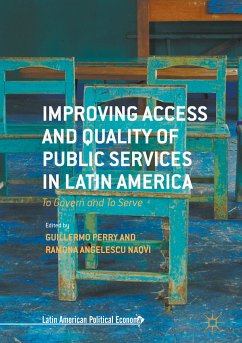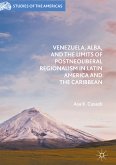This book presents insights from several countries in Latin America and beyond on how to organize critical sectors, such as education, roads and water, to improve quality, access and affordability. The innovative, multi-disciplinary studies in this volume discuss the outcomes of decentralization, school autonomy, participatory budgeting at the local level and other accountability mechanisms. Rich quantitative analyses are complemented and enhanced by insights from interviews and quotes from those on the front lines: politicians, bureaucrats and service providers; as well as a variety of case-studies focusing on wider political economy questions, on the intricacies of political competition and governance reform, and on public spending efficiency in countries as varied as Colombia, Peru, Chile and Uruguay. As the authors demonstrate, Latin America has much to share with the rest of the world in terms of governance and public service delivery experiments and learnings.
Dieser Download kann aus rechtlichen Gründen nur mit Rechnungsadresse in A, B, BG, CY, CZ, D, DK, EW, E, FIN, F, GR, HR, H, IRL, I, LT, L, LR, M, NL, PL, P, R, S, SLO, SK ausgeliefert werden.









